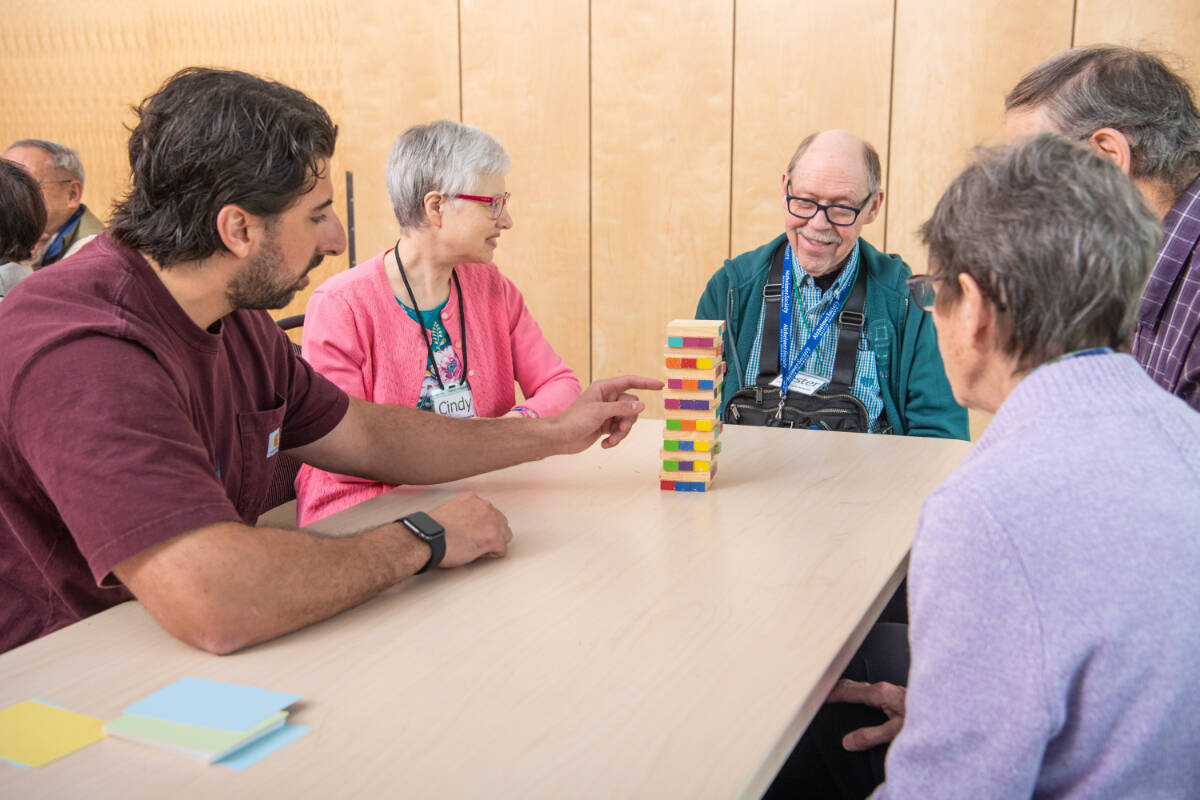Ten ways to maintain brain health and reduce risk of dementia

Tying something new, playing games and keeping social can help slow down the progression or reduce the risk of developing dementia.
January is Alzheimer’s Awareness Month and throughout the month, the Alzheimer Society of B.C. is sharing the stories of people affected by dementia to help challenge stigma and raise awareness of the organization’s support services. Here in the Yukon, that includes Don Cheeseman, a Whitehorse resident living with dementia himself.
A former lecturer and engineer who had an adventurous and fulfilling career prior to his retirement, Don knew something was wrong when he started to having trouble with his memory or following what people around him were saying. He received an invitation to participate in a research study program from the CAN-THUMBS UP Brain Health Support Program, partially funded by the Alzheimer Society Research Program. Through the study, Don was diagnosed with dementia.
“I can only talk about what I remember, but if I were asked your name in 10 minutes, I wouldn’t remember it,” says Don.
Some days he can do the tests from the research study program very well, whereas the other days, not so much. “I learned there were things I could improve by changing the way I lived and things I could not affect or improve.”
Learn more about Don’s story here.
Maintain your brain health
There are things we can do to
- Be physically active. Choose activities and sports that you enjoy so physical activity won’t seem like a chore to tick off.
- Avoid smoking and excessive alcohol consumption. Make conscious and healthy choices in your habit to maintain life-long brain health.
- Track your numbers. Keep your blood pressure, cholesterol, blood sugar and weight within recommended ranges.
- Stay socially connected. Being socially active can reduce risk factors for dementia, such as depression and social isolation, like joining a fitness class or a book club.
- Make healthy food choices. Eat a well-balanced diet that is rich in cereals, fish, legumes and vegetables.
- Reduce stress. Relaxation, hobbies and socializing are important aspects to our health and well-being. Find a balance that relieves stress and helps maintain optimal health.
- Challenge your brain. Try something new, playing games or learning a new language.
- Take care of your hearing. Avoid being continuously exposed to loud noises and wear a hearing aid if hearing does become a problem.
- Lower your risk of falls. Consider installing handrails on all stairs and grab bars in bathrooms.
- Reduce your exposure to air pollution, such as exhaust from heavy traffic.
Remember, your abilities, health and interests should be considered while finding ways to maintain brain health. If you’re concerned about dementia, speak with your doctor or health-care provider.
Find support in the Yukon
The First Link® Yukon Dementia Helpline is for anyone in the Yukon who is affected by dementia – including people living with dementia, their families, caregivers and health-care providers, as well as others who are concerned about dementia or memory loss. This service is provided in collaboration with the Yukon Government.
Learn more about dementia support in the Yukon here.


